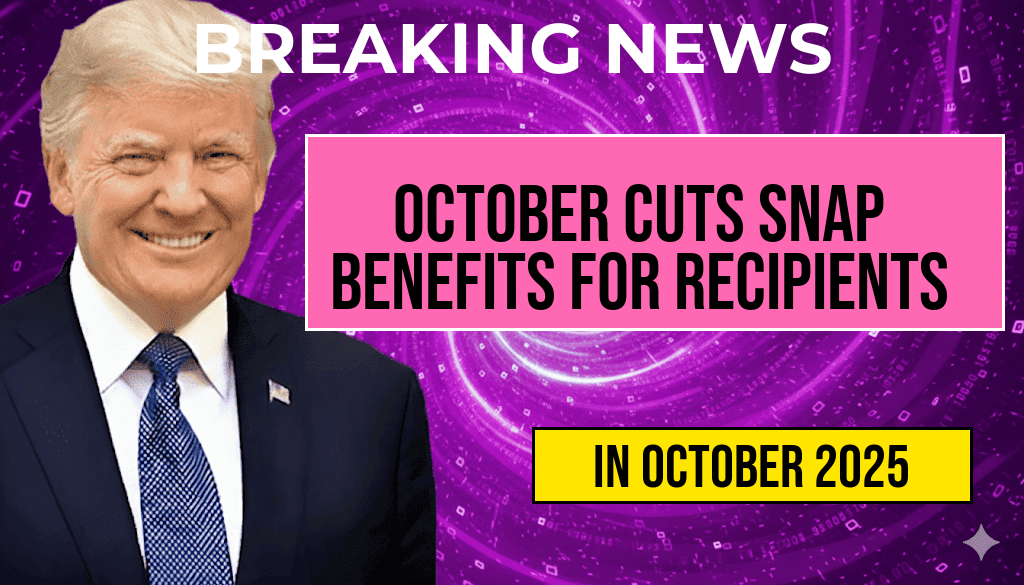In a significant policy shift, the U.S. Department of Agriculture (USDA) is set to implement changes to the Supplemental Nutrition Assistance Program (SNAP) this October, potentially affecting millions of beneficiaries. The overhaul aims to streamline the program but has raised concerns among advocates about the potential impact on vulnerable populations. The USDA reports that the adjustments are intended to enhance program efficiency and ensure better resource allocation. However, critics argue that these changes may lead to increased food insecurity among low-income households.
Details of the October Overhaul
The upcoming changes are part of a broader initiative to modernize SNAP, which serves approximately 42 million Americans each month. The USDA has outlined several key modifications that will take effect on October 1, 2023:
- Eligibility Criteria Revision: The thresholds for income eligibility will be recalibrated, potentially disqualifying some households that previously qualified.
- Benefit Calculation Changes: The method for determining monthly benefits will be altered, likely resulting in lower assistance for some recipients.
- Implementation of Work Requirements: Stricter work requirements will be enforced for able-bodied adults without dependents, which may lead to a reduction in the number of individuals receiving benefits.
Impact on Recipients
The USDA estimates that approximately 3 million people could lose their benefits due to the revised eligibility criteria. Advocacy groups warn that these changes could disproportionately affect families with children, the elderly, and individuals with disabilities, who often rely on SNAP for essential nutrition.
Voices from the Community
Local food banks and community organizations have expressed grave concerns about the impact of these changes. Maria Gonzalez, director of a community food pantry in Los Angeles, stated, “Many of our clients depend on SNAP. Reducing benefits or cutting people off will only exacerbate hunger and poverty in our communities.”
The National Anti-Hunger Coalition has also voiced opposition, emphasizing that the cuts come at a time when food prices are rising and economic uncertainty remains high. “This is not the right moment to tighten the belt on those who are already struggling,” said spokesperson James Harper.
Government Response
USDA officials defend the overhaul, asserting that the changes are necessary to maintain program integrity and ensure that benefits go to those who need them most. “We are committed to helping families achieve self-sufficiency while also safeguarding taxpayer resources,” stated USDA Secretary Tom Vilsack in a recent press conference.
Vilsack emphasized that the program will continue to evolve to meet the needs of a changing economy. He also noted that public comments were collected prior to finalizing these changes, indicating that the USDA is listening to stakeholder feedback, albeit with limited adjustments made in response.
Future Implications
The October overhaul is not the first major change to SNAP in recent years. Legislative adjustments and budget cuts have been frequent. As the landscape of food assistance continues to evolve, the implications for low-income Americans remain a pressing issue.
For many beneficiaries, the upcoming changes may lead to difficult choices between paying for food and other essential expenses, such as housing and healthcare. The potential for increased reliance on food banks and community assistance programs is a growing concern among social service providers.
Resources for Affected Individuals
Individuals who believe they may be affected by the SNAP changes are encouraged to seek assistance and explore their options. Resources include:
As the October deadline approaches, the conversation around food security and assistance continues to evolve, highlighting the need for comprehensive solutions to address hunger in the United States.
Frequently Asked Questions
What is the October Overhaul regarding SNAP benefits?
The October Overhaul refers to a significant change in the Supplemental Nutrition Assistance Program (SNAP) that aims to eliminate benefits for certain recipients based on new eligibility criteria.
Who will be affected by the elimination of SNAP benefits?
The changes will primarily affect recipients who do not meet the updated eligibility requirements, which may include income thresholds and work requirements.
When will the changes to SNAP benefits take effect?
The elimination of benefits is scheduled to take effect in October, impacting all recipients at that time.
What should current SNAP recipients do to prepare for the overhaul?
Current recipients should review their eligibility status and familiarize themselves with the new criteria to ensure they understand how the overhaul may impact their benefits.
Are there alternatives for those who lose their SNAP benefits?
Yes, individuals who lose their SNAP benefits can explore other assistance programs, such as local food banks or community services that provide support for those in need.

Leave a Reply